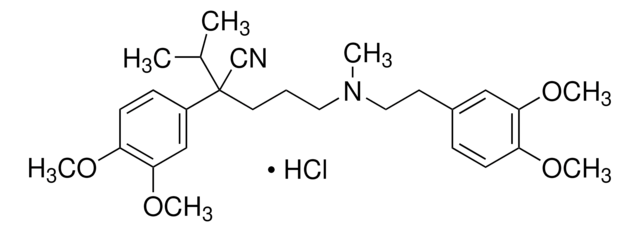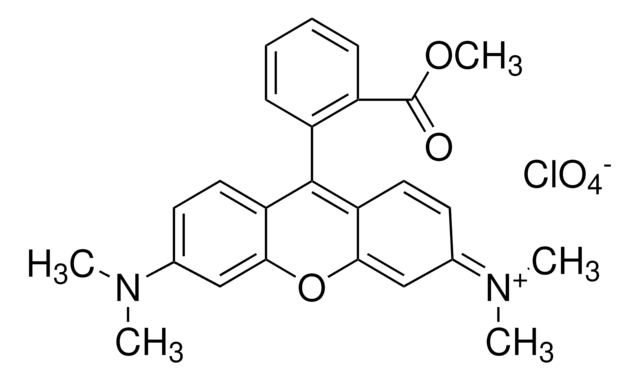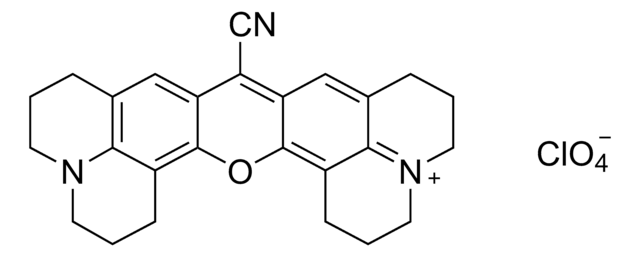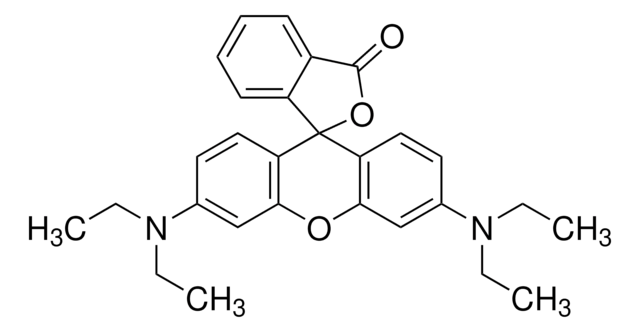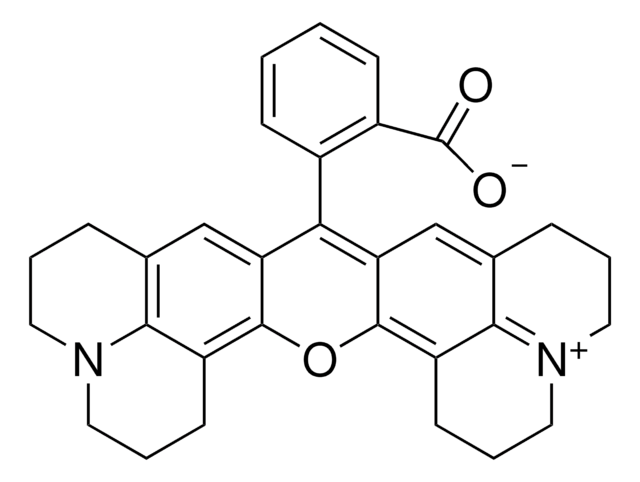R8004
Rhodamine 123
Powder
Synonym(s):
2-(6-Amino-3-imino-3H-xanthen-9-yl)benzoic acid methyl ester
About This Item
Recommended Products
Product Name
Rhodamine 123, mitochondrial specific fluorescent dye
Quality Level
form
powder
solubility
ethanol: 1 mg/mL
application(s)
diagnostic assay manufacturing
hematology
histology
storage temp.
room temp
SMILES string
Cl[H].COC(=O)c1ccccc1C2=C3C=CC(=N)C=C3Oc4cc(N)ccc24
InChI
1S/C21H16N2O3.ClH/c1-25-21(24)15-5-3-2-4-14(15)20-16-8-6-12(22)10-18(16)26-19-11-13(23)7-9-17(19)20;/h2-11,22H,23H2,1H3;1H
InChI key
MYFATKRONKHHQL-UHFFFAOYSA-N
Looking for similar products? Visit Product Comparison Guide
Application
Biochem/physiol Actions
Storage Class Code
11 - Combustible Solids
WGK
WGK 3
Flash Point(F)
Not applicable
Flash Point(C)
Not applicable
Personal Protective Equipment
Choose from one of the most recent versions:
Already Own This Product?
Find documentation for the products that you have recently purchased in the Document Library.
Customers Also Viewed
Early Lineage Progression and Aging Phenotypes in
Adult Hippocampal Neurogenesis
Our team of scientists has experience in all areas of research including Life Science, Material Science, Chemical Synthesis, Chromatography, Analytical and many others.
Contact Technical Service

